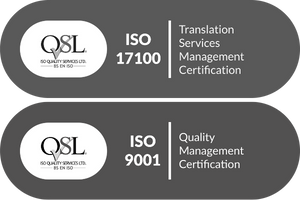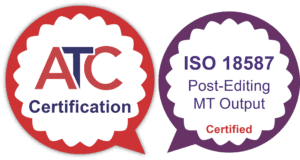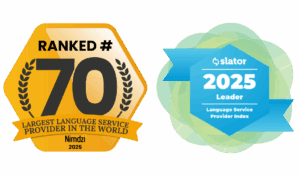Are you wondering if using a bilingual employee to translate documents is a good idea for your organization? It may seem like a cost-effective and efficient solution, but there are actually several reasons why this practice is not advisable. Here we will explore the potential drawbacks of using a bilingual employee for document translation and why it’s important to use a professional translator. So, let’s dive in and find out the answer to the question “Should I use a bilingual employee to translate documents?”
Lack of Expertise
Translating documents is not just about understanding the language, it’s also about understanding the industry, target audience and the context in which the document is being used. A bilingual employee may have the language skills, but they may not have the necessary knowledge and expertise to translate a document correctly. This can lead to errors and inaccuracies, which can have serious consequences for your clients.

Medical Terminology
Translating medical documents is a specialized task that requires a deep understanding of medical terminology and the healthcare industry. A bilingual employee may not have the necessary knowledge and qualifications to translate medical documents correctly. This lack of expertise can lead to serious medical errors and malpractice claims.
Confidentiality
Translating medical documents also requires a high level of confidentiality. A bilingual employee may not be aware of the legal and ethical obligations to protect patient information, which can lead to breaches of privacy and data protection laws. Professional translators are trained to handle sensitive information with discretion and confidentiality.
Accuracy
In the healthcare industry, accuracy is crucial. Medical documents contain sensitive information that can have a direct impact on a patient’s health and well-being. A bilingual employee may not be able to provide the level of accuracy and attention to detail required for medical translations. This can lead to serious consequences for patients.
Lack of Quality Control
When a bilingual employee is responsible for translating documents, there is often a lack of quality control. This can lead to mistakes and inconsistencies in the translation, which can have a negative impact on the business. Professional translators have a system of checks and balances in place to ensure that translations are accurate and consistent.
Costs
Using a bilingual employee to translate documents may seem like a cost-effective solution. However, it can actually end up costing more in the long run. Mistakes and inaccuracies can lead to legal issues, lost business, and reputational damage. It is often more cost-effective to use a professional translator who can provide accurate and reliable translations.

Certification
Finally, professional translators often have certifications and qualifications that are specific to the healthcare industry. This shows that they have the necessary knowledge and expertise to provide accurate and reliable translations of medical documents. A bilingual employee may not have these certifications, which can lead to doubts about their qualifications and abilities.
In conclusion, while a bilingual employee may seem like a convenient solution for translating documents, there are several reasons why it’s not advisable. Lack of professionalism, legal implications, lack of quality control, and costs are just some of the reasons why businesses should avoid using a bilingual employee to translate documents. Instead, they should opt for a professional translator who can provide accurate, reliable, and industry-specific translations.
If you are in need of professional translation & localization services, Linguava can help you. Our ISO certified team of experienced and qualified translators can provide accurate and reliable translations for all types of documents, including legal, medical, and technical documents.
At Linguava, we are here to support you as your partner in language access. We are both ISO 9001 and 17100 certified. If you are looking for high quality Translation and Localization , Scheduled Video Interpretation, Video Remote Interpretation, Over the Phone Interpretation, or American Sign Language, please connect with our team of experts below to learn more.

If you have a file ready to translate, get your file analysis and free quote here.
Do you want to know more about ISO?
Meet our Quality Assurance & Production Manager & ISO Expert!
Patricia Muñoz Andrés
Email: patricia@linguava.com
Connect on LinkedIn

Video Transcript:
Should I use a bilingual employee to translate documents?
Can I just leverage my current staff who happen to be bilingual to translate the documents that we have in our company internally? My advice for that would be NO and here’s why.
It’s important that whenever you’re having anything translated or localized that you are working with a trained professional who has the right credentials, and education. And background to make sure that every single project that you’re translating is getting the best quality. Whereas someone from your organization might know some of the language but they don’t have the right credentials to be able to make sure that quality check, and editing, and proofreading. That should be done by the language service company that you’re working with, is being done consistently every single time.
So the best way to provide the highest quality for your patients and get the best health outcomes for your patients is to be working with a professional language service company that’s gonna be partnering with a professional translator.









